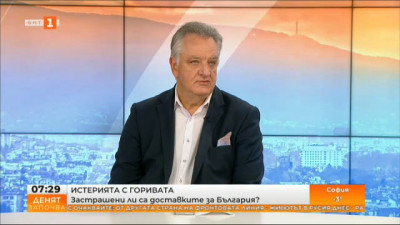Fuel price tensions are the result of people's expectations that sanctions imposed by the EU and the United States on Russia will stop the supply of crude oil to Neftochim-Burgas, hence the refinery will stop and there will be market shortages. This was explained in "The day begins" Andrey Delchev, executive director of the Bulgarian Oil and Gas Association.
"In the first moment when someone heard the rumor that the fuels were running out, respectively the prices were skyrocketing, people rushed to the gas stations. Fortunately, this lasted one night, the next day everything was calm," he said.
According to him, higher prices at smaller gas stations are due to the ability of retailers to reap greater economic benefits, while larger chains have a more consistent pricing policy.
"Yesterday I toured the whole country. On the highway the highest fuel prices were around BGN 2.70, 2.80. In small settlements they were BGN 2.99, 3.02, 3.05, which is strange and contrary to normal economic logic," Delchev explained.
He described as insane the rise in prices by 0.30-0.40 levs in some places. He said that gasoline and diesel prices had risen by between 0.10 and 0.15 levs.
"Colleagues commented yesterday that the prices were around BGN 3.15. There are also more than BGN 3.15, but these are premium fuels, which have always been more expensive," Andrey Delchev explained.
Bulgaria is following the same rate of price increase as Europe, he said. If prices fall sharply, an export corridor opens. Wholesale prices follow the market and demand, wholesalers also follow the market.






